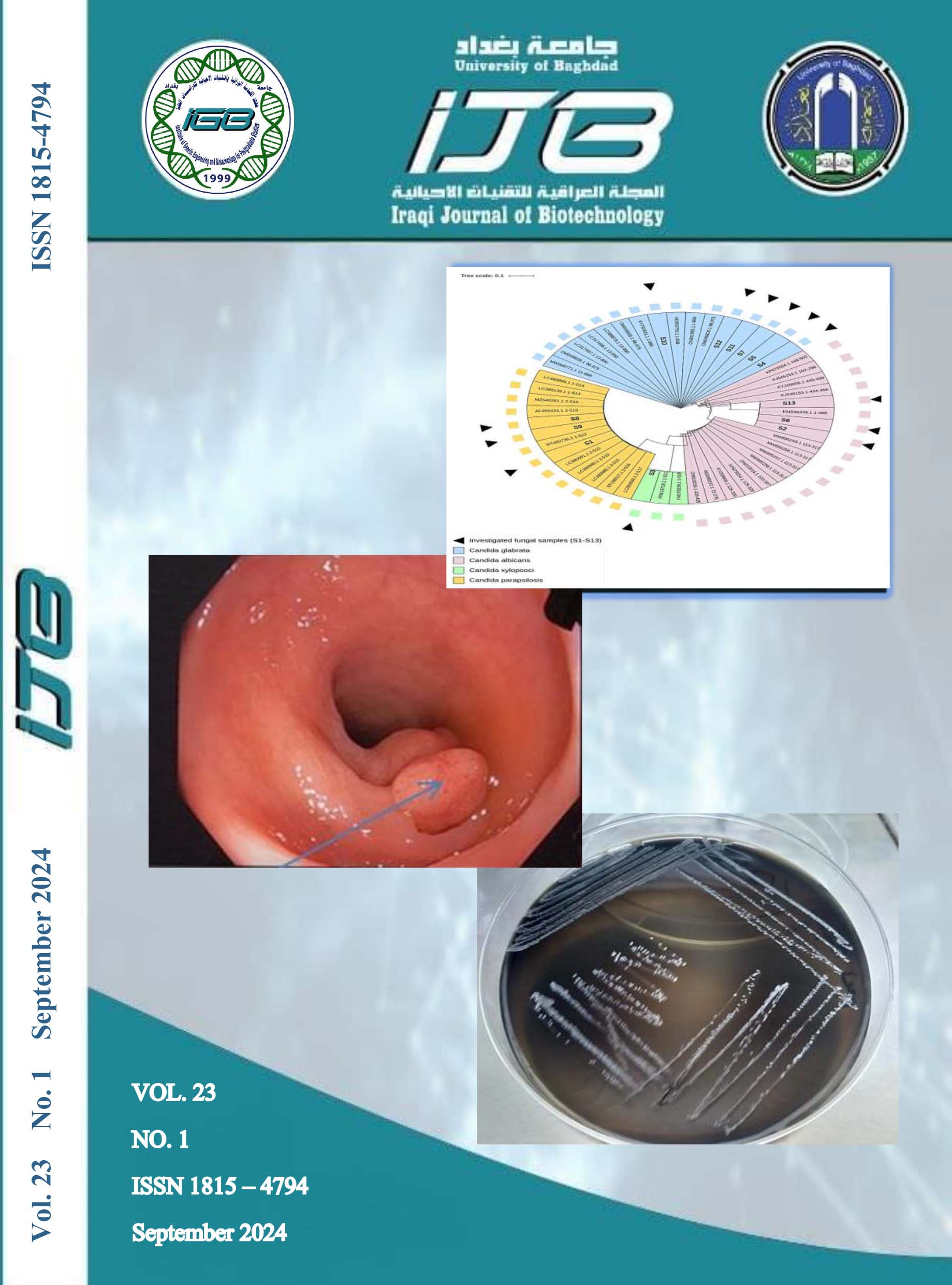Antibacterial Effect of Manganese Nanoparticles Loaded on Prodigiosin against Pathogenic Pseudomonas aeruginosa
Abstract
Pseudomonas aeruginosa are opportunistic pathogens that can cause infections in the lungs, skin, and eyes of people with cystic fibrosis (CF), HIV/AIDS, and burns and abrasions. In this study, the biosynthesis method of manganese nanoparticles (MnO NPs) was performed using pigment of Serratia marcescens, called Prodigiosin, which is utilized as a stabilizing and reducing agent. The amid of study was to investigate the antimicrobial activity of manganese nanoparticles on clinical isolate of P. aeruginosa. The results, one hundred and eighty samples were collected from burn and wound infections of different patients with different ages and sexes, from Kadhimiya Hospital, Karkh General Hospital and Yarmouk Hospital during the period from September 2022 to December 2022, whereas all these samples were subjected to different examinations in order to isolate P. aeruginosa. The influences of varied concentrations (25, 50, 100 and 200 µg/ml) of MnO NPs on bacteria P. aeruginosa were demonstrated. The antibacterial action was showed to be immediately reliant on the concentration of MnO NPs. The maximum inhibition zones around P. aeruginosa isolate were 28 mm at concentration 200 µg/ml of MnO NPs, while the minimum regions of inhibition were set at 25 µg/ml MnO NPs concentrations, were 10 mm. In conclusion, manganese nanoparticles that loaded on prodigiosin showed effective antibacterial activity against P. aeruginosa.


